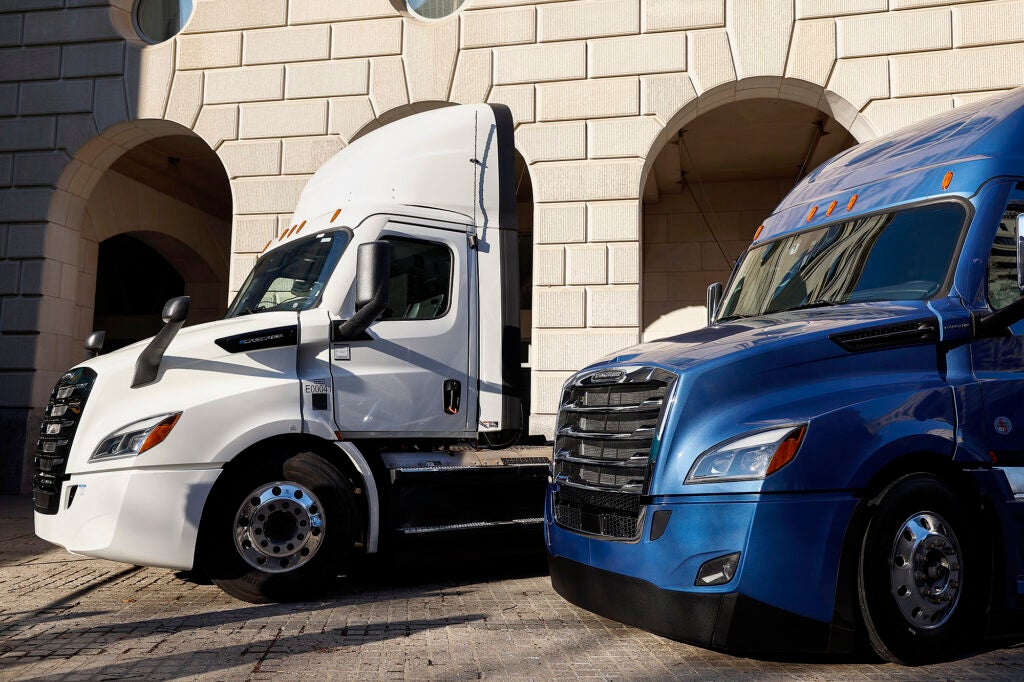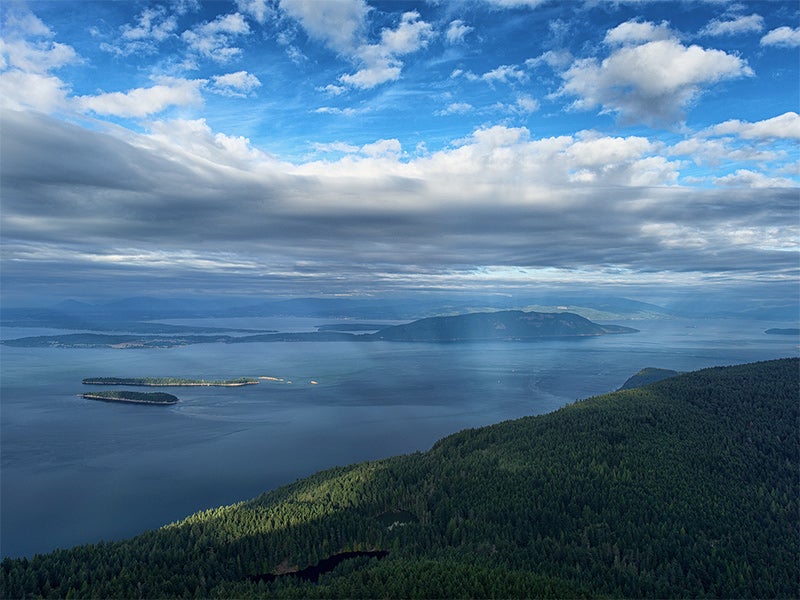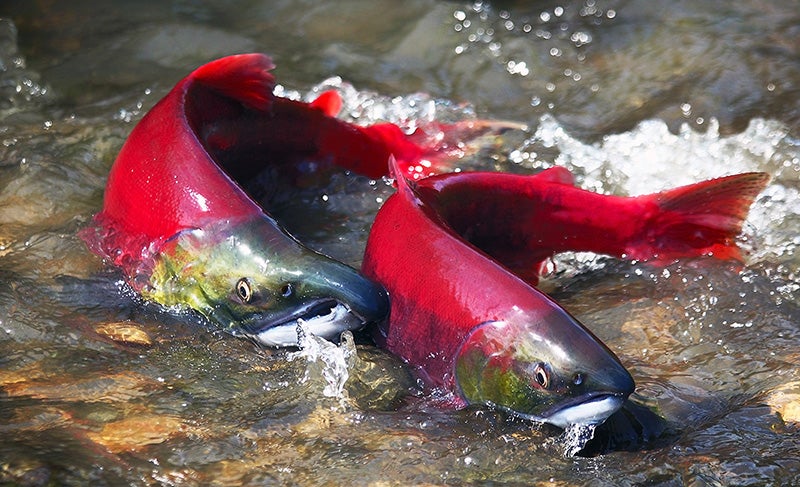Wins and Highlights from the Washington 2025 Legislative Session
Let’s celebrate this year’s environmental victories, plan to continue our work in the Columbia Basin — and prepare for next year!
As the Senior Legislative Representative for Earthjustice’s Northwest Office, my primary responsibility is to analyze bills in the Washington Legislature — to support legislation that moves us forward and beat back bad bills. The Washington Legislature alternates between short and long sessions. During even-numbered years, the session is 60 days. In odd-numbered years, like the one just passed, the session is 105 days and includes developing Washington’s two-year budget.
To a lesser degree, I also track and advocate on Oregon legislative strategies. The main legislative issue I cover in Oregon is the restoration of Columbia Basin salmon, which is of regional and national significance.
Oregon and Washington legislative sessions for 2026 will begin in January. We’ll need the help of our supporters to ensure that worthy bills we worked on but that did not pass in 2025 will advance in 2026. If you live in Washington or Oregon, please consider joining Earthjustice’s email list to receive regional action alerts and legislative summaries like this one so you can get more involved.
The following is a rundown of bills and budget wins within our focus areas of environmental protection, equity, and sustainability that we can celebrate — plus a few bills we need to work on again next year.
Washington budget items we supported that passed
- Clean Trucks Rule: Advancing Emission Reductions: The Washington State Legislature, through the State Transportation Budget, allocated $10 million in new funding to an emerging grant program aimed at reducing emissions from medium and heavy-duty trucks. When combined with existing funding, the total available grants amount to $126 million, supporting the transition to cleaner transportation options.
- Climate Commitment Act Revenue Protection: Securing Funding for Climate Initiatives: The Climate Commitment Act (CCA) is Washington State’s cap-and-invest program, requiring the state’s largest polluters to purchase allowances for their greenhouse gas emissions. Proceeds from these auctions fund climate resilience projects, clean transportation, and environmental justice initiatives. This year was a tight budget year, with the state experiencing a $16 billion general fund deficit and following an election year in which the CCA was put to the voters to either reject or maintain. Given these circumstances, we’re happy to report that CCA was maintained; revenue was kept intact; and it was used again to continue funding essential climate programs, not to backfill the state’s budget gap. Since 2023, when the allowances went live, the CCA has generated nearly $3 billion in revenue, supporting projects that reduce emissions, improve air quality, and promote sustainable practices across the state.

Clean and electric trucks sit on display at an event on new national clean air standards for heavy-duty trucks near the U.S. Environmental Protection Agency Headquarters in Washington, D.C. (Anna Moneymaker / Getty Images)
Washington bills we supported that passed
- Sewage Spill Right-to-Know Act: Enhancing Public Awareness (House Bill 1670): Hundreds of sewage spills occur across Washington each year, and despite wastewater operators reporting to the Department of Ecology, that information rarely gets to the public in a timely or effective manner. This bill, prime sponsored by freshman Representative Hunt (D-Issaquah) and endorsed by the Environmental Priorities Coalition, of which we are a member, mandates the Washington Department of Ecology to develop a public-facing website that includes notices of sewage spills, estimated volumes, and steps taken to contain the discharge. The right to know is essential, helping prevent exposure to unhealthy waters caused by sewage overflows. Washington follows New York and other states that have implemented such public notification programs successfully.
- Recycling Reform Act: Modernizing Washington’s Recycling System (Senate Bill 5284 & House Bill 1150): SB 5284, prime sponsored by Sen. Lovelett (D-Anacortes) passed both the Senate and House and was signed into law by Governor Ferguson. Its House companion was prime sponsored by Rep. Berry (D-Ballard). The legislation, which took several years to pass, establishes an Extended Producer Responsibility (EPR) program, requiring manufacturers and consumer brands to reduce unnecessary packaging, fund statewide collection services, and ensure materials placed in curbside bins are recycled. The program is set to be fully operational by 2030, and initial projections indicate residents are expected to see up to a 90% reduction in their household recycling bills by 2032, with services expanded to an additional 500,000 homes, particularly in rural areas and multifamily residences.
Washington bills we opposed that we helped stop
- Clean Water Act Advocacy: Protecting Puget Sound (House Bill 1937): Along with our friends at Puget Soundkeeper Alliance, we actively worked against HB 1937, a bill prime sponsored by House Transportation Chair and Democrat Rep. Fey (D-Tacoma). This bill would have undermined the Clean Water Act’s safeguards. We were successful in our advocacy and ensured it did not get a committee hearing, effectively stopping it from getting any attention or traction among the caucus. HB 1937 would have changed how industrial facilities that discharge stormwater are regulated, making it easier to pollute and reduced oversight and testing by limiting stormwater sampling as optional at transportation facilities (like railyards or logistics hubs) unless Ecology determined it safe to conduct testing. As you may know, stormwater runoff accounts for roughly 30% of toxic pollution in the Puget Sound; less testing would mean fewer detections of harmful discharges of heavy metals, oil, or debris. This bill would have rolled back years of progress made in cleaning up the Sound, its tributaries, and maintaining a safer and healthier environment for the people that depend on it. We will continue to monitor as this problematic bill could come back to life next legislative session.
Washington bills we supported but did not pass. Let’s rally for next year!
- Salish Sea Protection and Marine Clean Fuels Act (Senate Bill 5519 & House Bill 1652): SB 5519 and HB 1652, prime sponsored by Sen. Lovelett (D-Anacortes) and Rep. Lekanoff (D-Skagit Valley) respectively, aimed to reduce pollution from large ocean-going vessels by requiring the use of low-sulfur fuels within three nautical miles of Washington’s shoreline and mandating record-keeping to demonstrate compliance. The companion bills did not advance to a vote, in large part due to their sizable fiscal cost, but we did secure hearings for both in the House and Senate policy committees. The issue remains a priority for Earthjustice and environmental partners like Friends of the San Juans, Stand.org, Seattle Cruise Control. Efforts to address vessel emissions have restarted and our prime sponsors remain staunchly committed to reviving the effort in 2026.
- Cumulative Risk Burden (CURB) Pollution Act: Advancing Environmental Justice (Senate Bill 5380 & House Bill 1303): Prime sponsored by Sen. Lovelett (D-Anacortes) and Rep. Mena (D-Tacoma) respectively, and championed by Front and Centered, a partner organization working to address environmental injustice issues, this bill sought include an Environmental Justice Impact Assessment when projects are proposed in frontline communities. The legislation aimed to ensure communities of color, low-income neighborhoods, and tribal lands do not continue to be disproportionately impacted by industrial land use, commercial activities, or other public infrastructure projects. Incorporating health and environmental justice considerations into the permitting process will help protect vulnerable populations from cumulative pollution burdens. While the CURB Pollution Act did not pass in the 2025 legislative session, advocacy efforts continue, and we are joining environmental justice partners in building robust support for and its passage during the 2026 legislative session.
- State Environmental Policy Act: Modernizing Washington’s Electrical Grid Resilience (Senate Bill 5466 and House Bill 1673): Prime sponsored by Senator Shewmake (D-Whatcom County) and Rep. Ramel (D-San Juan, Whatcom, Skagit Counties) respectively, this bill sought to update the State Environmental Protection Act (SEPA) to accelerate clean energy transmission upgrades, and establish the Washington Electric Transmission Authority, a state agency designed to plan, coordinate, and accelerate the expansion and modernization of the state’s electric transmission infrastructure. SB 5466 passed out of the Senate 29-20 and advanced through two house committees but ultimately failed to receive a vote of the entire House chamber. We expect the bill to be a top priority for the environmental community, labor, and other stakeholders next year. We will continue to coordinate with our tribal partners to ensure culturally sensitive sites are protected, tribes are adequately consulted, and that state law is amended in a surgical way to protect our environment while addressing increased energy demand and advancing our state’s clean energy goals.

The Salish Sea. (J. Andrew Flenniken)
Issues that span the Pacific Northwest region
- Columbia Basin restoration: The Trump administration has brought plenty of chaos nationally and regionally. One of the federal decisions that is continuing to have bad ripple effects is the administration’s decision to unilaterally and abruptly rescind the Resilient Columbia Basin Agreement, an historic agreement between the federal government, the states of Oregon and Washington, Umatilla, Warm Springs, Nez Perce, and Yakama tribes, and conservation, clean energy, and fishing groups represented by Earthjustice. As you may recall, since the 2024 legislative session, we secured nearly $8 million in funding for energy, transportation, irrigation replacement studies and an economic analysis of recreational opportunities — essentially outlining what it would take to make the region whole if and when the four lower Snake River dams were to be breached, which would require congressional approval. The Trump’s administration’s decision to renege on the agreement means that our region is left with contracts executed and left in limbo. These analyses are essential to ensuring that our region is prepared to replace and upgrade systems that offer commerce and leisure opportunities for the public. We are working with our partners in Oregon and Washington in establishing a strong and strategic regional response to the Trump administration’s decision to end the agreement.
Looking ahead
As we near the 2026 legislative session, we are in talks with members about legislation already introduced though not passed, and new concepts that involve clean energy, healthy communities, and affordability. We’re exploring strategies and drafting concepts with members of the legislature, and we’ll be sure to share them with you when they are introduced by the coalitions that are building strength and momentum for passage of the legislation. Sign up to receive our legislative updates to learn more about them when they are pushed out live!
Established in 1987, Earthjustice's Northwest Regional Office has been at the forefront of many of the most significant legal decisions safeguarding the Pacific Northwest’s imperiled species, ancient forests, and waterways.
Elizabeth Manning
Public Affairs and Communications Strategist, Earthjustice
emanning@earthjustice.org
